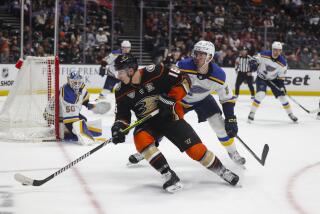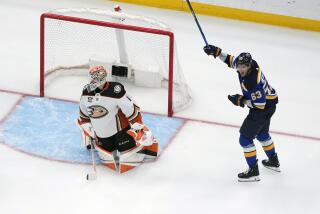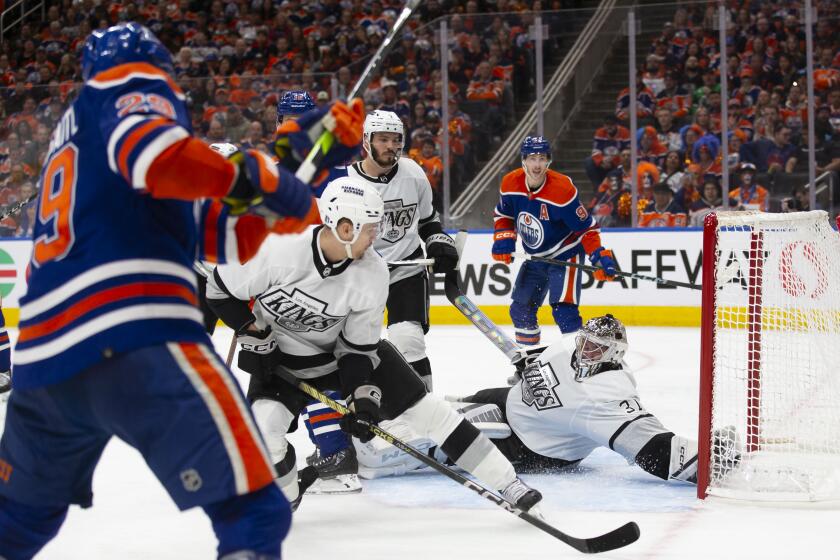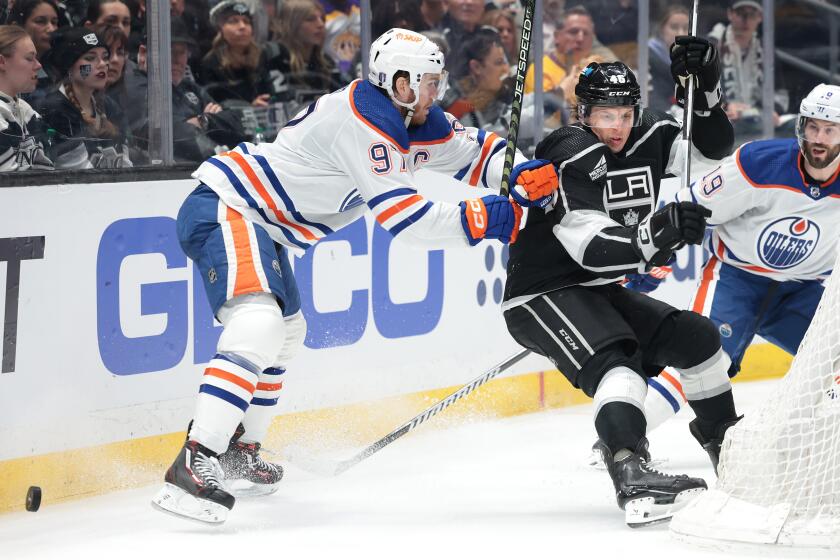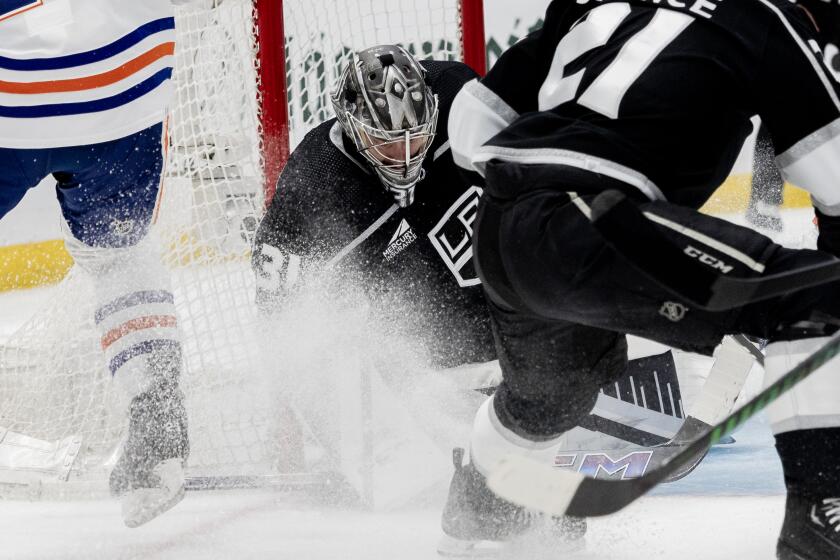What we learned from the Ducks’ 2-1 overtime loss to the Jets
Fans were given noisemakers that sounded like vuvuzelas for the Ducks’ regular-season home finale Tuesday. At game’s end, the more appropriate sound was that of a deflating 1970s game-show horn for losing contestants.
The Ducks lost a one-goal lead late and missed a chance to set up a potential Pacific Division-clinching game Thursday against the Kings.
Here’s what we learned:
The Ducks got away from their attack. Ducks Coach Bruce Boudreau didn’t like the way his team crossed the opposition blue line. The Ducks are often guilty of unnecessary drop passes, and Tuesday applied.
“We talk about not being cute with the puck,” Boudreau said. “We’re a meat-and-potatoes team, so we have to play north-south hockey and get it deep all the time. When we don’t do that, we’re usually in trouble.”
The Ducks have very special teams. The one bright spot in the loss was Anaheim’s continued dominance in special teams. They killed all three penalties and finished with a 90% (126 for 140) success rate at home on the penalty kill.
Corey Perry’s power-play goal also moved the Ducks closer to history. Anaheim leads the NHL in power play and penalty killing and, if it holds, will become the first team to do so since the 1984-85 New York Islanders.
First-year assistant coach Paul MacLean is largely responsible for the man-advantage improvement, from 28th last year. Fellow assistant coach Trent Yawney is in charge of the penalty-killing unit and said it hasn’t done anything differently than it did last season.
Yawney didn’t want to take any credit and pointed to star players Ryan Getzlaf and Ryan Kesler buying in by blocking shots.
“When you see those guys -- the best players doing it -- it’s pretty hard for everyone else not to do it,” Yawney said.
Follow Curtis Zupke on Twitter @CurtisZupke
More to Read
Go beyond the scoreboard
Get the latest on L.A.'s teams in the daily Sports Report newsletter.
You may occasionally receive promotional content from the Los Angeles Times.

